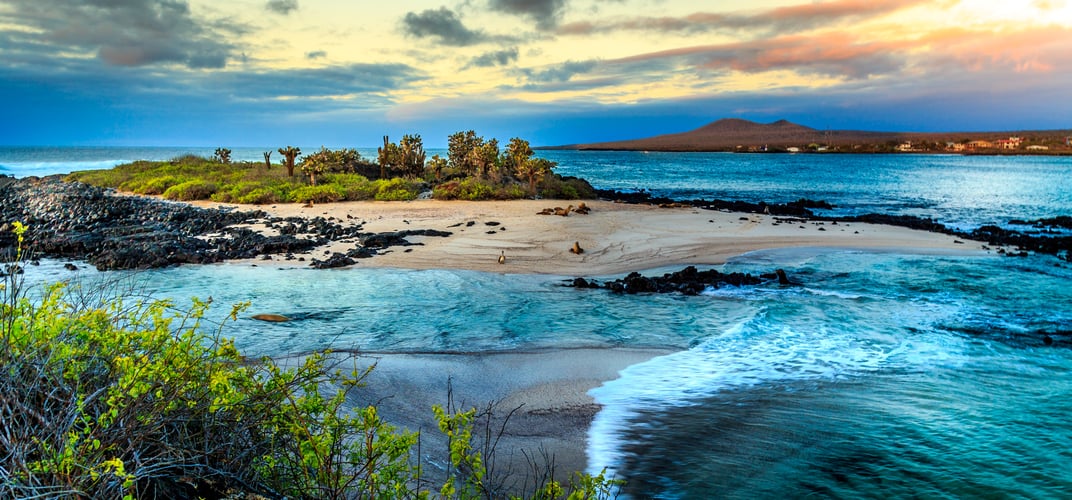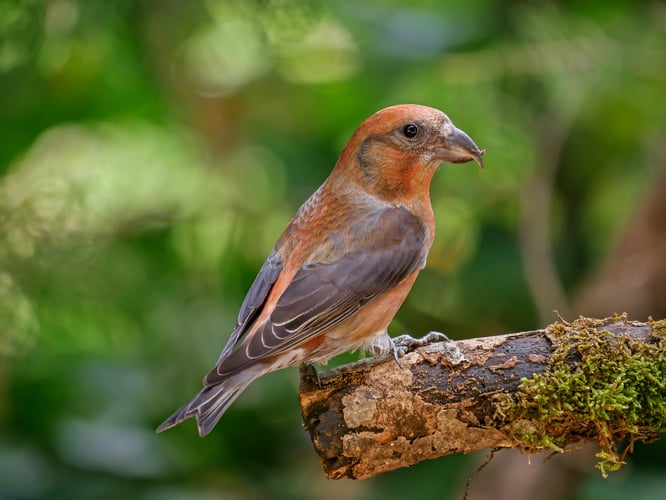Charles Darwin is one of the most famous and celebrated naturalists of all time and known as the father of the theory of evolution. His birthday is coming up on February 12th, which is also a day where scientists and groups all over the world celebrate his accomplishments in science and human curiosity. Not only did Darwin’s discoveries change scientific thinking around the world forever, but if you spend any amount of time outside, you can see how his ideas are still relevant today, even here in Colorado.
Charles Darwin’s discoveries and theories would not have been possible without his voyage on the HMS Beagle. While the voyage lasted close to 5 years, one of the most iconic and important stops was on the Galápagos Islands. Galápaos are a group of volcanic islands off the coast of Ecuador, that eventually proved to be a vital stop when writing his famous work “On the Origin of Species” that helped launch some of his most famous theories into scientific consensus.

The Galapagos Islands, home to a diversity of plant and animal life, are the islands that Darwin spent time studying the birds he learned later were all finches.
These islands were notable because in geologic time they were recently made and their location is separated from the mainland, but they still contain a wide diversity of plant and animal life. More interestingly, even within the chain of islands Darwin was able to find distinct differences between similar species on the different islands. This eventually helped lead to his groundbreaking theory of natural selection. Natural selection says on a basic level that different mutations and adaptations cause differences in survival and reproduction which causes certain adaptations to persist over time.
One of the key species that Darwin studied on the Galápagos Islands was a group of birds known as “Darwin’s Finches”. These birds had similar shapes, sizes, and colors, but adapted to their different environments on the islands and filled different roles known as “niches”. Darwin’s Finches had different beaks suited for different foods like seeds and insects. Later it was found that they were not even finches but actually a part of the tanager family.
Here in Colorado, one bird species that is also a good case study on natural selection are the red crossbills (Loxi curvirostra). They are a species known to be distinct because of the unique way their beak grows. Their beak tips cross at an angle to help them to more easily pry apart pinecones and other seeds. There are different “types” of crossbills that have distinct calls and food sources that may someday be genetically distinct enough to be considered their own species, much like Darwin’s finches.

The red crossbill, a type of finch, is a bird you can see here in Colorado that has some obvious adaptations due to natural selection.
And in a way, the different regions in Colorado can act as their own islands. The dry and arid regions in the west are in stark contrast to the high-altitude mountainous regions with colder temperatures and harsh winters. Different challenges and pressures are present in both and have caused adaptations to be seen across multiple species that help animals survive these regions, like the large feet and changing colors of the snowshoe hare.
Darwin Day serves as an opportunity to instill a sense of curiosity and appreciation for the natural world in the community. Darwin’s emphasis on inquiry and observation should inspire budding scientists and nature enthusiasts alike. Next time you are outdoors, even if it’s not Darwin Day, try to look at the plants and animals around you with the wonder and curiosity that Darwin did - you might notice some surprising things.
As humans, we don’t necessarily think about other animals forming lifelong relationships. The reality is whether an individual has feathers or fur the emotion of love is felt universally.
Reese Farrow is the Lead Naturalist at Walking Mountains and he would love to be able to visit the Galápagos Islands in his lifetime.







